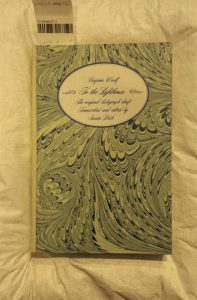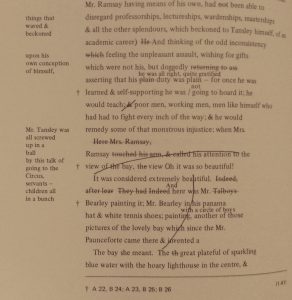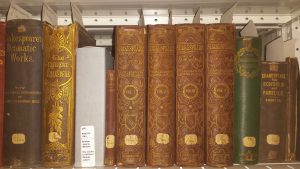July 12, 2019, by Kathryn Steenson
Mapping Modules
This is a guest post by Sasha Gardner, undergraduate student undertaking a placement to identify rare books and archives useful for students taking modules in Classics and English.
As a first-year English student, discovering the vast array of books and journals available at Hallward and other libraries on campus was an exciting moment. But many of us remain unaware of the innumerable treasures held by Nottingham’s Manuscripts and Special Collections department, a short bus ride away from University Park. My work with module-mapping this year has given me the opportunity to experience older and more rare texts first-hand, as I searched across different collections to find relevant materials to complement the content taught in each module offered by the English department.
Not only did this project enhance my ability to search catalogues effectively and physically examine books to ascertain relevancy, but it also brought me into contact with texts that might otherwise have lain unnoticed by me and my English-studying peers. Ranging from a transcript of Virginia Woolf’s original holograph for To The Lighthouse, a unique and invaluable resource for any student interested in tracking Woolf’s substantial textual revisions, to contemporary accounts of performances of Shakespeare and Behn, the texts I found throughout this project provided a valuable counterpoint to the more up-to-date resources to which we were directed by tutors, often available online or in Hallward library.

Front cover of ‘To the lighthouse: the original holograph draft’ by Virginia Woolf transcribed and edited by Susan Dick. Ref: Modern Literature Collection PR6045.O72.T6 barcode 1006869732.

‘To the lighthouse: the original holograph draft’ by Virginia Woolf transcribed and edited by Susan Dick. Ref: Modern Literature Collection PR6045.O72.T6 barcode 1006869732.
Tutors and students of all essay-writing subjects will acknowledge that reading widely across different time periods, locations and cultures enhances students’ work immeasurably, and a spreadsheet such as the one I created for the English department, detailing relevant titles for each module, demonstrates just how much the Manuscripts department has to offer those students seeking to take their research one step further. Making such a resource readily available to students would undoubtedly both impress upon them the wealth of texts at their disposal, as well as directing them towards materials relevant to any particular module they might wish to investigate further. It seems to me that these materials are currently viewed as somewhat remote and inaccessible, particularly to first-year students who have yet to visit the Manuscripts department, and information compiled in a user-friendly spreadsheet may serve as an invitation to explore a department both fascinating and conducive to producing high-quality academic work.
For more information about placements or the archives and rare books at MSC, please see our website or email us. You can also follow us on Twitter and read our newsletter, Discover.
No comments yet, fill out a comment to be the first


Leave a Reply